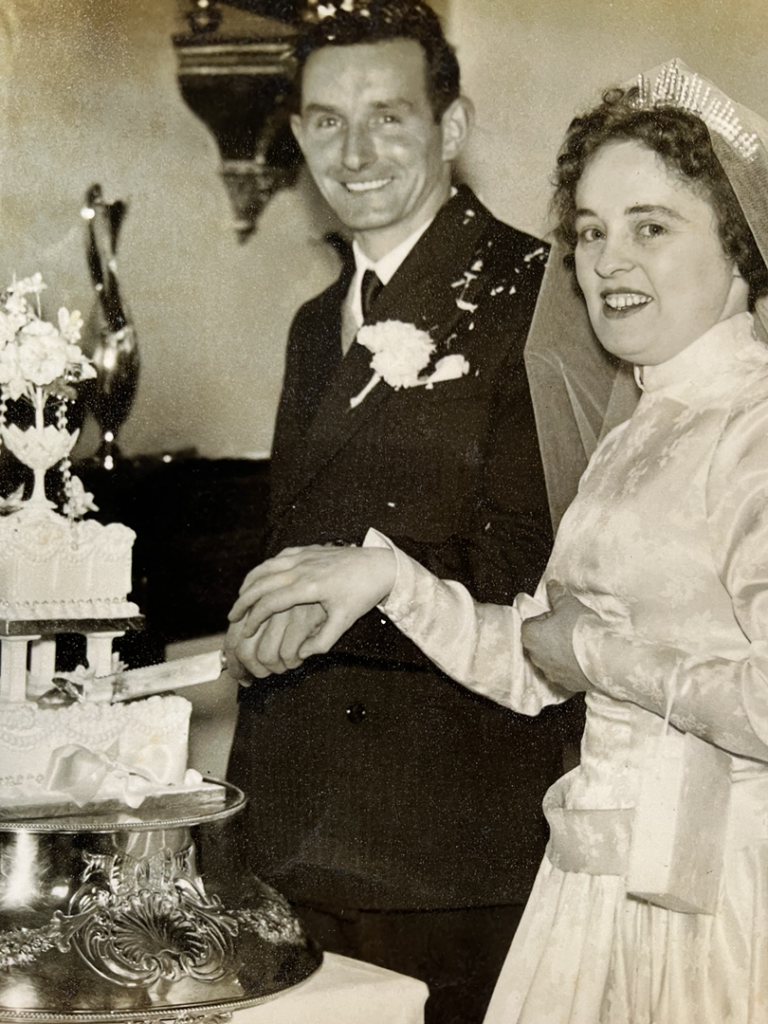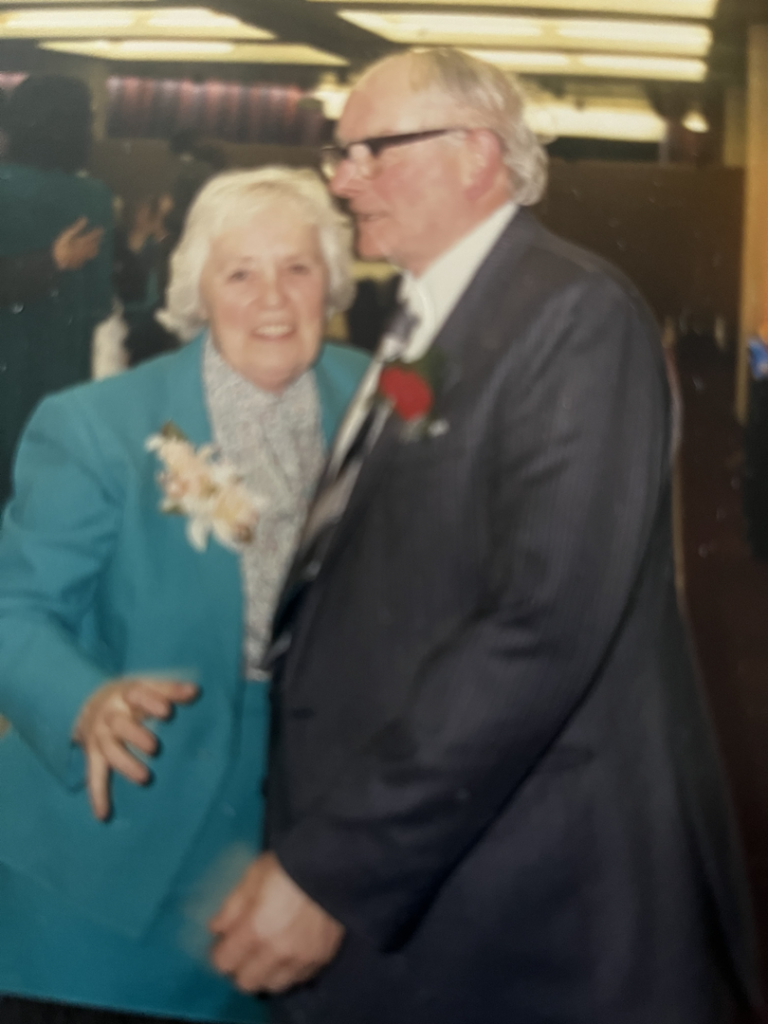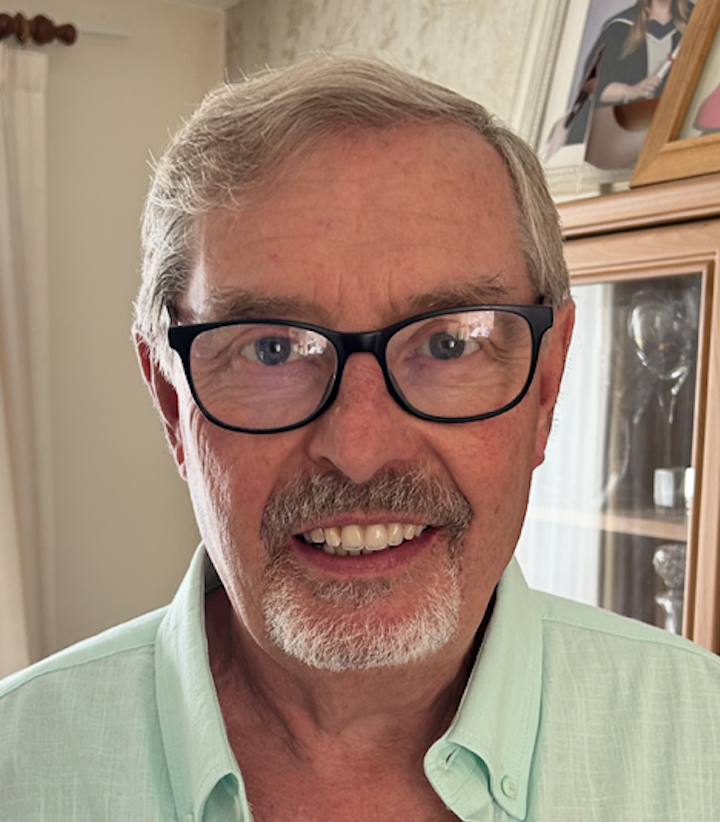A CAMPAIGN has been launched to recognise thousands of stillborn babies who were buried in unmarked graves across Britain.
Second generation Irishman John Murphy, who lives in Calne in Wiltshire, is leading the call for memorials to be erected at the sites in cemeteries across the country.
Mr Murphy’s baby sister is one of 60 stillborn babies that were buried in an unmarked grave in Reading in 1960.
His Kildare-born parents, Carmel Murphy, who was born in Athy, and Patrick Murphy, of Carnalway, had moved to London to find work in the 1950s.
They married in 1955 and started to raise a family. John, their first son, was born in 1958.
 Carmel and Patrick Murphy were married in 1955
Carmel and Patrick Murphy were married in 1955A year later Carmel fell pregnant with his sister and the family moved to Reading.
It was there, while under the care of the Battle Hospital, that her baby died towards the end of her pregnancy.
Carmel had to deliver her baby naturally in May 1960, but following the birth the body was taken away from them, and they never saw her again.
“My dad told me his memory of the day his daughter was delivered,” Mr Murphy told The Irish Post.
“He recalled sitting outside the ward when a nurse/nun came out with a bundle wrapped in a sheet.
“She said to him "I'm sorry Mr Murphy but don't worry you'll have another one next year".”
He added: “Dad and mum had no idea where their daughter was buried, they were never told.
“As no birth certificate was required for a stillborn there was, unlike today, no funeral, no goodbye and ultimately no closure.”
In the years that passed the Murphy family grew. John had four more brothers, but Carmel carried the loss of her daughter all her life, while also battling with anxiety and depression.
Fourteen years ago, Mr Murphy decided to find his sister’s grave.
 Carmel and Patrick Murphy were never told where their daughter was buried
Carmel and Patrick Murphy were never told where their daughter was buried“I enquired of the local registrar, and I was able to uncover that "baby Murphy" was delivered stillborn at the Battle Hospital in Reading and buried at the Henley Road Cemetery in Reading,’ he explained.
“The cemetery has excellent ledger records for this time and they were able to show me to a patch of grass devoid of any markings and the groundsman using his expert knowledge of the site, which was not a smooth lawn but a large grass area with humps and dips, was able to take me to the unmarked grave number where my sister had been laid to rest with other stillborn children.”
Mr Murphy was finally able to tell his parents where their daughter was buried.
“I was able to take dad to the grave,” he said.
“He wanted to lay a stone, put down a border around the grave, something, but sadly the rules don't allow for that.
“Mum died knowing I had found the grave but not mentally strong enough to see where her much loved daughter was laid to rest,” he adds.
Now John and his brother Dominic are determined to gain recognition for their sister, and all the other stillborn babies who were buried in unmarked graves.
“Our sister is one of untold thousands of babies buried in almost every cemetery in the UK under grassed areas that are uneven, where there are no markers,” Mr Murphy said.
“Obviously back in 1960 this is how these things were dealt with. The people who made those decisions are long gone.
“So, I am not interested in massive expensive investigations and I’m not looking for huge apologies, it’s all about getting some recognition for those children.”
 Campaigner John Murphy
Campaigner John MurphyMr Murphy’s local MP Sarah Gibson is supporting their campaign to install memorials at the gravesites.
Through a Freedom of Information request, Ms Gibson, who is the MP for Chippenham, has found that more than 89,000 stillborn babies were buried in unmarked graves across Britain before the late 1990s.
“I was deeply touched by John and his brother Dominic’s story and share their wish to understand why their sister could not have been identified as a person in her own right, why she was buried without their parent’s knowledge and for a memorial to be erected in cemeteries where stillborn babies were buried in shared, unmarked plots,” Ms Gibson told The Irish Post.
“John’s family’s experience was heartbreaking but sadly, not unique,” she added.
“For decades, tens of thousands of stillborn babies were buried in unmarked communal graves, often without the knowledge or consent of their grieving parents,’ she explained.
“Many families were denied the right to say goodbye. These were not abstract losses, they were children who were loved, wanted, and are still grieved.
“The state’s failure to treat stillbirth with compassion continues to cause lasting pain for many families, like my constituent, John and his brother Dominic.”
Ms Gibson has since brought forward a parliamentary motion calling on the Government to “support local authorities to identify affected sites and install modest memorials, for example plaques or stones”.
Mr Murphy is hopeful that they can achieve their aims and have memorials installed across the country by Mother’s Day 2026.
“Every one of these kids was loved and wanted,” he said.
“It would be right to get recognition for these children, to just have a simple monument that recognises them,” he added.
“A simple granite stone to be placed in those green spaces with a little plaque that recognises that these children were born and were loved.
“And I would love to see a situation where on Mother’s Day next year we have 50 or 100 of these sites across the UK with a modest monument where people could go and remember those that are buried there.”

